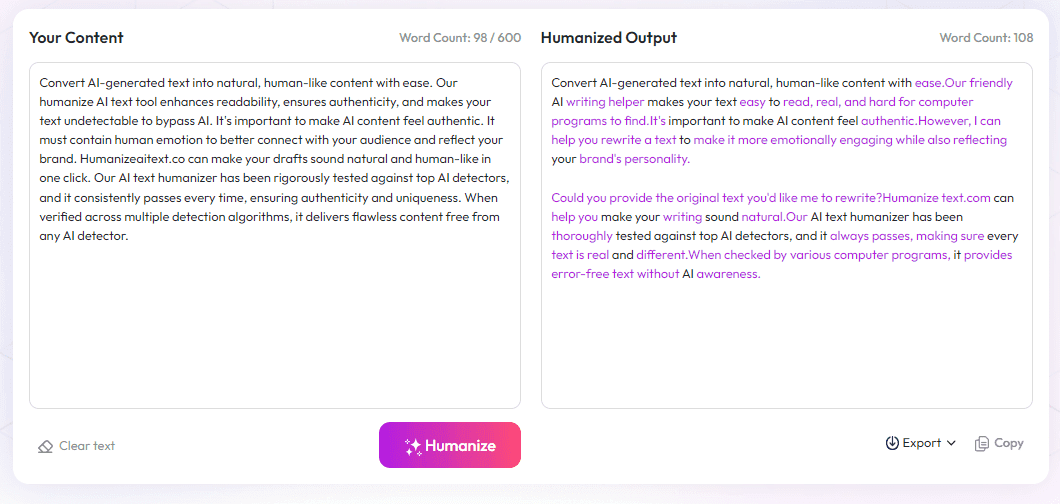Table of Contents
Struggling to keep track of your writing progress? You're not alone—many authors find it tough to stay motivated and organized.
Stick with me, and I’ll help you find the perfect productivity tracker that fits your goals, so your writing flows smoothly and you actually finish what you start.
In this guide, we’ll look at different tools and tips to choose the right tracker, making your writing journey easier and more enjoyable.
Key Takeaways
Key Takeaways
- Using productivity trackers helps authors stay organized, hit daily goals, and finish projects faster. The best tools fit your writing style and focus on easy logging, goal setting, and progress review.
- Popular options like Scrivener, Trello, Notion, and Google Sheets cater to different workflow needs. Choose ones that sync across devices and match your project size.
- Tracking your work creates clear insights into when you're most productive, reveals habits that slow you down, and helps prevent burnout by managing your progress regularly.
- Digital tools are especially useful for remote or hybrid writers, providing accountability and helping keep on top of deadlines even when working alone from different locations.
- Consistent tracking boosts overall efficiency, saves time, and keeps motivation high by showing steady progress and highlighting areas for improvement.
- Integrate tracking into your daily routine by setting specific times to log progress, use reminders, and review data weekly to optimize your writing schedule.
- Be honest and flexible with your tracking efforts. Try different tools or features until you find what motivates you and supports your writing habits best.
- Many successful authors rely on simple routines like daily word count goals, weekly reviews, and celebrating milestones to stay productive and motivated.
- Ultimately, pick a tracking method that fits your life and stick with it. Use the insights to work smarter, avoid distractions, and keep your writing goals in sight.

Thinking about becoming more productive as an author? The key is finding the right tools to keep your writing on track and your goals in sight. Author productivity trackers are apps or software designed to help writers monitor their daily word counts, manage deadlines, set targets, and analyze their progress over time.
In fact, a striking 96% of companies now use some form of time-tracking software, indicating just how widespread these tools have become by 2025. While most associate time tracking with corporate settings, writers can also benefit from similar tools to stay accountable and make writing more efficient.
If you’re working remotely or juggling multiple projects, tracking your productivity is even more crucial. Studies show that time tracking software can boost productivity by nearly 50%. For example, one California-based company saved over $22,000 annually simply by implementing such tools to monitor employee activities. This demonstrates how effective digital trackers can be, even beyond the corporate world.
So, what makes a good author productivity tracker? The best tools should help you set achievable goals, log your daily writing sessions, and review your performance regularly. They should also seamlessly integrate with your existing workflow to avoid becoming just another distraction.
Popular options include Scrivener, known for its distraction-free writing environment and project organization features; Trello, which allows you to create visual boards for story development and deadlines; and Notion, a flexible workspace for tracking goals, notes, and research. Additionally, some writers favor simple solutions like Google Sheets, which can be customized to fit any workflow.
Choosing the right tracker depends on your writing style and objectives. If you need to break down complex projects, tools with project management features are beneficial. If your focus is on hitting daily word count goals, apps that allow quick logging and progress visualization work well. For instance, dedicated writing apps like FocusWriter help minimize distractions during focused writing sessions.
By consistently tracking your work, you can identify productivity patterns, pinpoint peak writing times, and adjust your schedule accordingly. Regular review of your progress can prevent burnout and keep your motivation high. Many successful authors now embed these routines into their daily writing habit, showing just how much a little data can boost your output.
Want to learn more about how to stay on top of your writing goals? You might find it helpful to explore guides on how to write a foreword or discover practical tips for developing your manuscript. Remember, the right tracker is a personal choice, so don’t be afraid to try a few until you find your perfect match.

How to Choose the Best Author Productivity Tracker for Your Needs
Picking the right tool isn’t just about what looks good or sounds fancy.
Start by assessing your writing style and goals—do you want to track daily word count, manage deadlines, or organize research?
Look for features that match your workflow, like easy logging, visual progress charts, or integration with other apps you use.
Consider ease of use—if a tool is complicated or cluttered, you might avoid sticking with it long-term.
Try out free versions or demos before committing to a paid plan; it saves headaches later.
Read reviews from other writers to see what they found helpful—and what fell flat.
Finally, don’t be afraid to switch tools if one doesn’t suit your evolving needs; flexibility is key.
Top Digital Tools and Apps That Keep Authors Productive
There’s no shortage of options, but some tools stand out for simplifying writing routines.
**Scrivener** offers a distraction-free environment plus robust project organization, perfect for multi-layered stories.
**Trello** helps visual thinkers map out plot points, deadlines, and character arcs on boards—great for keeping track of complex projects.
**Notion** acts as a flexible workspace—combine notes, research, and goal tracking all in one place.
For those who prefer simple logging, **Google Sheets** can be customized to monitor progress and set daily targets.
On the mobile side, apps like **FocusWriter** cut down distractions by providing a clean, minimal writing screen.
Choose tools that sync across devices if you write both at home and on the go—you don’t want to be locked into one device.
Benefits of Using Author Productivity Trackers
Using these tools often leads to more consistent writing habits and better time management.
They help you see exactly how much you’re achieving each day—great for staying motivated or spotting slumps.
Tracking progress can reveal your most productive times of day, so you can schedule writing sessions when you’re most alert.
Data from trackers can also identify habits that slow you down, such as frequent social media checks, allowing you to cut those out.
Regular review reduces the risk of burnout by showing you realistic progress and steady improvements.
Plus, some trackers integrate with AI or research tools, making complex tasks like editing or fact-checking easier.
All in all, they turn guesswork into actionable insights, allowing you to focus on what truly moves your projects forward.
How Digital Tracking Tools Are Supporting Remote and Hybrid Writers
Remote work has changed the game for many authors.
Digital trackers let you monitor your work without needing to be physically present—ideal for maintaining accountability.
A January study found that 75% of knowledge workers say AI and tracking tools boost their focus, which helps writers stay disciplined.
In hybrid settings, 55% of managers report that remote monitoring improves team productivity.
Using these tools can help prevent procrastination and ensure deadlines are met, even from afar.
Some apps allow you to set alerts or reminders when hitting targets or lagging behind.
While not meant to replace human accountability, they fill in the gaps for those working solo or from a distance.
The Impact of Productivity Tracking on Overall Writing Efficiency
Numbers show that writers who track their work tend to finish projects faster and with better consistency.
In fact, companies saving over $22,000 annually thanks to time tracking give a clear win for efficiency.
For authors, this means fewer wasted hours and a clearer path from draft to publication.
Data also reveals that tools helping monitor "work about work" cut down on distractions, freeing up more time for actual writing.
If you want to squeeze more out of each session, start by tracking how long you spend setting up and switching between tasks.
The best part? Over time, you'll see patterns emerge—letting you optimize your schedule for peak productivity.
Integrating Tracking Tools Into Your Daily Writing Routine
The key to success is consistency—make tracking a normal part of your day.
Choose a specific time each morning or evening to log your progress or review your goals.
Set small, achievable targets—like 300 words per session—and record each effort.
Use alerts to remind you to start or stop writing, so you're not just hoping for discipline.
Pair tracking with other habits—like listening to a playlist or writing in a specific location—to reinforce routines.
Review your data weekly to see trends: Are your writing sessions more productive after coffee or in the afternoon?
Adjust your schedule based on these insights, and your routine will become second nature.
Tips for Making the Most of Your Author Productivity Tracker
Don’t just track—use the data.
Set clear goals—daily word counts, chapter completions, or research milestones—and measure progress regularly.
Be honest with yourself; tracking works best when you accurately log every session, no cheats allowed.
Experiment with different tools or features until you find what motivates you—badges, visual charts, or streaks can boost morale.
Combine tracking with accountability partners or writing groups for extra motivation.
Remember, the goal is to build lasting habits, so keep your routines simple and sustainable.
And finally, don’t get hung up on perfection—use setbacks as learning opportunities and keep moving forward.
Examples of How Notable Authors Use Tracking to Improve Productivity
Many successful writers swear by daily tracking routines.
Stephen King, for instance, often aims for a set number of words per day, tracking his progress in a journal.
Another example is **Paulo Coelho**, who uses planning tools to break down large projects into manageable pieces, ensuring steady progress.
Authors like **Haruki Murakami** set fixed daily routines, tracking their writing hours and sticking to strict schedules—this consistency fuels their productivity.
Even in the digital age, some rely on simple handwritten logs to monitor their writing flow.
These routines often include reviewing progress weekly, adjusting targets, and celebrating milestones—keeping motivation high.
Final Thoughts: Making Tracking Tools Work for You
The main takeaway: find what fits your lifestyle and stick with it.
Start small—track just your daily word count or hours spent writing—then add other metrics as needed.
Give yourself flexibility; if a tool doesn’t work after a few weeks, don't be afraid to try another.
Remember, the purpose is to shed light on your habits and help you work smarter, not harder.
Eventually, tracking will become a natural part of your writing process, giving you data-driven insights to push your projects Forward.
For more tips on developing your writing journey, check out our guides on how to write a foreword or other helpful resources.
FAQs
Select a tracker that fits your writing habits, offers customizable features, and provides clear progress insights. Prioritize tools that integrate with your workflow to stay motivated and organized.
Look for features like goal setting, progress tracking, deadline reminders, and integration options. These help you monitor your progress and stay on schedule with your writing goals.
Yes, by setting regular goals and tracking progress, a productivity tracker helps you stay accountable and develop consistent writing habits over time.
Begin by defining your writing goals, selecting a suitable tracker, and setting manageable targets. Use it daily to log progress and adjust your habits as needed for better results.



